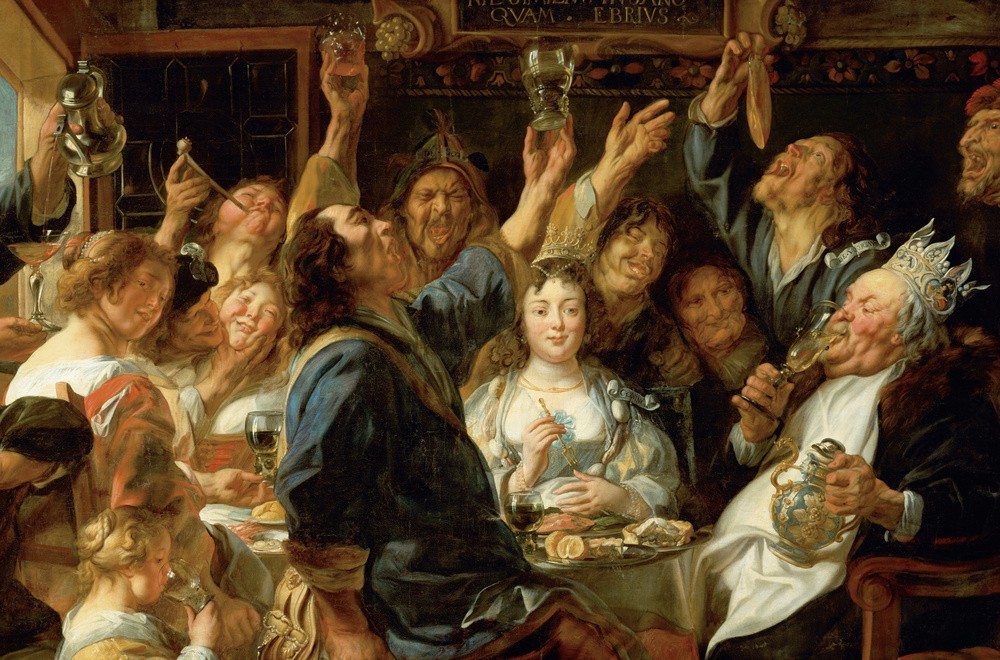In the beginning, God made us hungry. Some of the first words spoken to man were the joyful declaration of the gift of food from a loving Father: “Behold! I have given you every plant yielding seed that is on the face of all the earth, and every tree with seed in its fruit. You shall have them for food” (Ge 1.29). Our need for food is not a flaw in our design but a glorious feature. Food and our appetite for it are ever-present witnesses of our creatureliness and dependence upon our Creator. Through food, God doesn’t merely sustain our lives but gives us abundant life. Food is given for us to enjoy; not merely the myriads of tastes and textures, but because through food we have communion with God himself.
The ordination of food as communion began at the Tree of life, continued through the worship feasts of Israel (Passover, Pentecost, Tabernacles, New Moon, Sabbath), and is experienced now at the Lord’s Supper. History comes to an end in a feast with God. Food and drink, being a part of creation, are good. Anyone who teaches you that any food or any drink is off-limits for proper use is teaching you a demonic doctrine. Everything created by God is good and nothing to be rejected if it is received with thanksgiving (1Tm 4.1-5).
But there is a danger. The danger stems from our sinful hearts that refuse to acknowledge the nature of food. We refuse to acknowledge the creatureliness of food, ignoring the limitations that God has placed on it, and we make it a god. Scripture calls this idolatry gluttony and drunkenness. As in all idolatry, gluttony and drunkenness are the covetous cravings that rebel against God’s boundaries and seek to find life in the creature rather than the Creator. Food and drink become your masters because you are mastered by your appetites. The healthy, life-giving, dependent relationship with the creation that God ordained is twisted.
Solomon warns his son about having undisciplined appetites throughout Proverbs. “Wine is a mocker, strong drink [beer] is a brawler, and whoever is led astray by it is not wise” (20.1). Alcohol (or any other mind-altering drug), while a good servant, does not make a good master. It is a brawler, the same Hebrew used for Harlot Folly translated “loud” in 7.11 and 9.13. Alcohol can be a liquid Harlot Folly who seduces you and, in the end, mocks you. She does so by relaxing the mind so much that it can’t be vigilant about making good judgments. You lose your inhibitions and are prone to make stupid or even sinful decisions.
One of the lures of alcohol is its relaxing quality that promises an escape from the world and its pressures. This is proper at the end of a day of dominion when you don’t need to be making judgments. But it is not proper as an escape from the dominion project. Proverbs 23.29-35 describes the man who uses alcohol in such a way. His whole life is undone. You drink to avoid the challenges and pain of dominion, avoiding problems. But every time you wake up from your stupor, the problems are still there and compounded. So you look for another drink. The pain is deeper and the sorrow greater. You are in a spiraling cycle downward that requires more and more alcohol to dull the ever-increasing problems. In the end, the venom of the serpent takes full effect, leaving you for dead.
Alcohol is not the only dangerous substance. Food can be just as dangerous. A ruler’s delicacies, Solomon says, are deceptive food (23.1-3). There are people who use food to control you, whether it is putting you in a position to be dependent on them or simply to influence your decisions. If you are a person whose appetites master him, then you can be easily controlled. The man who wines and dines you, promising you more where that came from if you throw in your lot with him, will use your appetite against you. The cool kids who party, inviting you to eat at their table if you act like them, can lead you to make bad decisions. Good men with good intentions getting elected to high office can be compromised by an appetite to be a part of the powerful crowd through being invited to all the right social events.
Mixing with winebibbers and gluttons will bring you to poverty, and drowsiness will clothe you with rags (23.19-21). We see this at one level in which a man is so given over to his appetites that he neglects his responsibilities. He has partied all night and sleeps it off all the next day. He tends to neglect his responsibilities, and, consequently, he is completely unproductive.
There are, however, what we call “high functioning” gluttons and drunkards. Are they the exception to the rule? No. Poverty in Proverbs is not merely a temporal reality but also an eternal reality. Gluttons and drunkards will not inherit the kingdom of God (cf. 1Cor 6.9-10). They are serving the wrong master.
There are those of us Christians who, with Paul, affirm the goodness of creation and reject the doctrine of demons that forbids certain foods and drinks. We are free to eat and drink what we want, and we are armed with good theology to defend our position. We, of all people, must be the most vigilant. We can become slaves to our appetites in the name of freedom. Be careful to maintain a healthy appetite.















